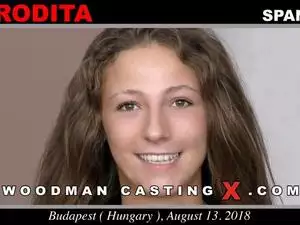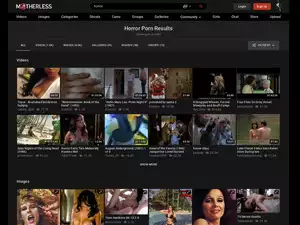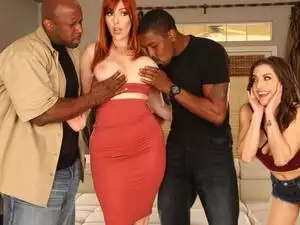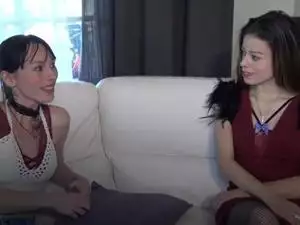Ovid 18 The SEALs
- 4 years ago
- 27
- 0

 2 years ago
2 years ago
As usual, this tale is about PG-13, but it is written for adults. Permission, as usual, is granted to any and all to archive. I hope you enjoy it. Ovid VI - The Developer By The Professor It was a perfect Saturday morning in Ovid. The sun was shining with the promise of a warm - but not hot - spring day. The humidity was relatively low for late May, and there was a light breeze from the north which meant I could open up the house and smell the aromas of spring. Jerry was at the...
 3 years ago
3 years ago
Ovid V: The Jet Jockey By The Professor It was a pleasant spring Saturday in Ovid. The sun was shining and the temperature was nearing seventy. Jerry and I had decided to make it a lazy day at the Patton household, letting the kids watch TV and play while he and I puttered at various small projects around the house. Jerry fertilized the yard, stopping at least twice for another beer. I did a little ironing and sewed a couple of missing buttons on the kids' shirts. All in all, it was...
 2 years ago
2 years ago
Ovid VII The Director By The Professor Copyright (c) The Professor, 1999 You would never expect to find a beach in Oklahoma, would you? Well, Sunset Beach was a pleasant surprise. Of course, it was really situated on a clear blue lake called Lake Pelias, and the sand was all trucked in, but on a hot summer afternoon, it was just the place to be. All the land around the lake was owned by a Brad Nelson. He had trucked in the sand and installed a gravel parking lot. Two dollars...
 4 years ago
4 years ago
Ovid 9 - The Private Eye By The Professor I felt as if I was running a nursery. Court had been in session all morning, and Ovid now had four new children - real children, that is - who needed to be integrated into their new lives. It wouldn't have been so bad if they had all been part of one trial, but the four children were the result of three separate trials. Where four separate men had once been, there were now four children, ranging in ages from six to twelve. Two were boys and...
 2 years ago
2 years ago
Ovid 19 - The Sleeper By The Professor The call from The Judge on an otherwise quiet Sunday afternoon came as no great surprise, after what had happened on Saturday. I had even arranged for Myra Smithwick to come over and baby sit for me since Jerry was breaking in a new weekend manager at the store. Normally I would have asked Susan to watch them, since her Joshua and my Ashley seemed to really enjoy each other's company, but Susan and her husband were in Kansas City at a Chiefs...
 2 years ago
2 years ago
Ovid 8: The Team By The Professor Part 1 I could remember being frightened before, and I could remember being elated. I was frightened back in high school when in a football game, I was being covered on a pass pattern by a guy who seemed to be twice my size. I thought he would kill me before I could haul in the ball that would win the game for us. Then I remembered the fear wash away as I caught the ball just inside the goal line. Then I was elated. But that was another lifetime...
 3 years ago
3 years ago
This one is PG-13. The usual suspects are free to post this at your sites. Others please ask - permission is freely given. Enjoy- The Professor Ovid 17 The Talking Head By The Professor I breathed a sigh of relief as I saw the sign welcoming us to Ovid just ahead. It was ironic, I supposed, for here I was, one of the favored who could come and go from Ovid as I pleased and yet I always looked forward to returning to the small town which had become my home. I know...
 5 years ago
5 years ago
This is the second story of the Ovid Cycle. As with all the Ovid stories, it contains adult content and should not be read by minors. Permission is hereby given to archive this at any site. Please notify me, though, if you intend to archive it. Return to Ovid: The Lawyer By: The Professor I was up to my eyeballs in work. If somebody had told me a little over a month ago that I would be the secretary to a municipal judge in Oklahoma, I would have snickered at them. If...
 4 years ago
4 years ago
Ovid 20 - The Whiz Kid By The Professor Of all the Gods I had come to know in my time in Ovid, there was only one I had come to actively dislike. Some of the Gods had practically become friends, and one in particular - Diana - had become one of my best friends. Others were more standoffish, indulging human company but actively avoiding it. Some of them could be brusque while others were merely distant. My own boss - The Judge - could be like that at times, although I gave him a bye...
 2 years ago
2 years ago
Ovid 10 - The Academician By The Professor Even when I was male, I always looked forward to spring. I enjoyed watching as the days got longer and the air got warmer. Just watching signs of life returning to the trees and grass was enough to raise my spirits to the stars. As spring began this year, I had something else to look forward to that I would have never imagined when I was male: I would delivery my first baby. Well, as far as the doctor was concerned, it wasn't my first....
 4 years ago
4 years ago
Ovid 15: The Politician By The Professor "I must see The Judge at once!" I looked up from my desk. I had been so involved in what I had been doing that I had not even heard anyone approach. What I saw in front of me was a stern-faced woman, middle-aged with short, black hair. She wore little or no makeup and her clothes were equally plain, consisting of a long black skirt and a gray blouse which did little to hide two oversized, drooping breasts. "I'm sorry," I said primly in my...
 2 years ago
2 years ago
Ovid 16 - The Derelict By The Professor I think the day I really reconciled myself to being a woman was the day I discovered I really did like to shop. Yes, I know, it's a tired old stereotype, but the shopping trips I enjoyed with Susan Jager allowed the two of us to bond as friends and as women. And it didn't hurt that it gave us a few hours unfettered by children. I probably appreciated that time more than Susan since she just had Joshua while I had Ashley and the twins. Susan...
 3 years ago
3 years ago
As usual, this contains adult material. Be 18 or begone. You're welcome to archive at any site. Please notify me, though. Ovid IV: The Bank Robbers By The Professor For the Captain The light breeze that blew up my skirt as I crossed Main Street on my way to Susan's office was almost warm. One pleasant surprise for me in Ovid had been that spring came much earlier to Oklahoma than it did to Indiana. Here it was, only the last week of February, and already the sun had...
 4 years ago
4 years ago
Almost eight weeks ago, I promised a new Ovid in three weeks or so. So what happened? Well, an unexpected illness followed by surgery and a hospital stay slowed me down. Although I was in the hospital for less than a week, I just didn't feel like finishing the latest Ovid tale. Well, I'm fine now, and the story is finally finished. It's the first Ovid story in several months. I try to alternate between an Ovid story and a non-Ovid tale, but after I finished Deity 2, County Fair...
 4 years ago
4 years ago
Ovid 14 - The Band By The Professor Every now and then, I wonder. I wonder if the gods I work for and with are really gods or something else. I wonder why they created Ovid. I wonder why they transform some people into other people and follow their new lives very closely while others they seem to forget before their victims ever stagger out of the courtroom. I wonder what they know of the future that we mortals can only guess at. But most of all, I wonder: why me? Why was I chosen to...
 3 years ago
3 years ago
Ovid 8 The Team By The Professor Part 6 Danny and I had spent most of the party talking to others and had spent very little time together. Maybe it was my imagination, but I suspected Danny was as uncomfortable being around me as I was being around him. We had been thrust into the role of a dating couple, and there were some real pitfalls to that. It might have been easier if we had barely known each other. If, say Austin Blake had been turned into Danny, it might have been...
 2 years ago
2 years ago
Time to visit Ovid again. As usual, this contains some adult material (maybe PG-13), so use your own discretion. You may archive at any site, but please notify me of your intention to do so. Comments are always appreciated. Ovid III: The Road Crew By The Professor It had grown colder in Ovid through the month of December. The remains of an early December snow were still piled by the side of the streets and a gray sky threatened at least another four inches before evening. I had...
 2 years ago
2 years ago
Indru tamil kama kathaiyil ilamaiyaana magalum pinbu vithavai ammavaiyum eppadi usar seithu matter poten endru ungaluku solugiren. Suvarasiyam athigam irukum kama kathaikul selalam vaarungal, en peyar karthik. En veethiiyil oru pen ilamaiyaaga sexiyaaga irupaal, avalai thinamum sight adithu kondu irupen. Thinamum aval kalluri sendru varum pozhuthu iru velaiyilum sight adika arambithu viduven. Aval peyar nandhini vayathu 21 irukum, avaluku veetil aan thunai kidaiyaathu. Veetil oru amma iru...
 1 year ago
1 year ago
Note : This story is completely fictional!In nineteen forty six Thelma Lou Anderson was married with three kids. Linda was the oldest. She was sixteen. Guy and George was ten and Guy seven. Thelma owned a beauty shop in Kansas City. She suspected her husband Lawerance was cheating on her again. She followed him one day when he thought she was at work and saw him go into a house. A woman opened the door and he went in. That was all the proof she needed. She went home and packed her suitcase and...
Incest 3 years ago
3 years ago
Mother Ethel always enjoyed the short walk to the train station. It was beautiful Autumnal morning and Mother Ethel took the opportunity to walk to the train station as she knew that she had a very busy day ahead. Those that saw Mother Ethel along the way bowed reverently,they knew that Mother Ethel was a Nun of the Monastery of Repentance and when a Nun or a Monk walked past it was polite to bow, for many knew what the Nun's and Monk's of the Monastery were capable of. As Mother Ethel strolled...
 2 years ago
2 years ago
Dot, Dorothea, and Dick Chapter One Dear sister: I found this letter among some others, scrolled up and tied with purple ribbon, in a chest belonging to our great grandfather. The name Charles has belonged to several in our family line, but I believe I know the one who received and saved this letter, and kept it preserved for so many years. I believe the letter speaks for itself, so I will now offer it up to you. Dearest Charles: I hope this missive finds you in such good...
 2 years ago
2 years ago
Our Last Day of School. I can’t believe it. This is my last day of school, I thought, not sure how I felt now that the long awaited day was here. Stepping out into the beautiful sunny afternoon, heading toward the group of waiting yellow school buses I breathed a sigh of relief. I was glad school was finished. Throughout High School like a ship at sea, I had plotted my course, studying hard. However, the Scholarship that many felt I had rightfully won had somehow ended up going to one of...
 2 years ago
2 years ago
“What’s wrong? What’s wrong?”Anthea looked up at her mum as she sat down at the dining table. “Nothing is wrong,” Anthea responded watching as her mum hurriedly dried her hands with a tea towel.“Is the baby okay? Are you okay? Is Jack okay?” she asked as her husband came into the room and pulled up a seat at the table.“We’re all fine Mum,” she responded exasperated with her mum’s anxiety. “I have something to tell you.”“Sit down Helen,” her dad snapped. “Give the lass a chance to speak.”Anthea...
 3 years ago
3 years ago
My Golden Summer with Blythe – Part 2 Josh’s childhood dream girl visits him in San Francisco. The Return of Blythe Coming from a small farming community, San Francisco proved to be everything Josh had ever imagined – and then some. He loved the freewheeling atmosphere – the friendliness – in short, he fell in love with the city by the Bay. Because of early retirements, and dedication to his work, he had advanced much quicker than he had ever expected. Arriving at his chic little Apartment...
 4 years ago
4 years ago
Uther By Ellie Dauber (c) 2006 Introduction According to the legends of King Arthur, Merlin changed Uther Pendragon into a double for Duke Gorlois, so he could spend the night with Ygraine, the Duke's wife. Ygraine and Gorlois had three daughters: Elaine, Morgause, and Morgan le Faye. During their time together, Ygraine became pregnant with the child who was to become King Arthur. Uther's men killed Gorlois that same night. This is my TG (of course) version of what...
 3 years ago
3 years ago
Chapter 11: Althea, the School Girl The infernal screeching of the alarm clock awoke Cal from his reverie. He had been up for about a half-hour, but he had only been lying in bed next to the love of his life. Althea's arms were still clutched about him as he stealthily clicked the snooze button, assuming that it was six o' five in the morning, his usual waking time during the school week. He had been thinking long and hard about the previous two nights. Evan... what have you become? He...
 4 years ago
4 years ago
edited by Master Ken Wednesday, September 4th, 2013 "Hi, I am Miss Blythe," I said to my class, writing my name on the whiteboard with a red dry-erase marker. "I will be your World History teacher." It was the first day of the new school year and, as I launched into the course syllabus, my thoughts kept drifting to that day in June at the end of the last term, when my Living God, the Holy Mark Glassner, walked into this very classroom and changed my very outlook on life. I didn't know...
 3 years ago
3 years ago
The the wind howled around the quayside as I stepped onto terra firma for the first time in weeks, the wind threw sharp shards of ice to sting our faces as we looked up at the sails as they were finally furled and stowed as our captain grinned at our discomfiture, "Au revoir!" he joked as if he knew we should soon be recalled. Those such as were left, and we were few enough, I shuddered. My best uniform packed securely in my Valise, awaited me, and just a few more duties before I...
 2 years ago
2 years ago
As he approached one of the hall's long mirrors he stopped to inspect himself. It was a familiar sight, the flowing, billowy French maid outfit surrounding his body. His arms and legs were outlined in silky, white stockings and arm-gloves. He wore pearl earrings and the lacy white collar around his neck was adorned with a beautiful pendant. It was a gift from mother that he wore every day, without fail. Jon's painted red lips and neatly applied eyeliner and blush were evidence that he was...
 2 years ago
2 years ago
PREFACE:There are no sex acts in the story but the patient does have an orgasm as a result of the Ther****t’s physical examination. Part 1 is the Sex Therapy appointment from the patient’s point of view and part 2 is the same examination seen through the eyes of the Ther****t. I don’t think it matters which one you read first.I hope you enjoy it and will let me know what you think in any...
 2 years ago
2 years ago
Katherine stepped into her elegant living room and took a book from the shelf. She sat in a plush lounge chair, specifically selecting a chair in the back corner of the room next to an old dumbwaiter that was once used to ferry delicious meals from the downstairs kitchen to the dining room table. She planned to read the book for a short while, but she already knew her attention would soon be diverted. Tonight the dumbwaiter would once again be placed into service, except this time it would be...
 1 year ago
1 year ago
Do you know of the porn site Motherless.com? You should. I’ve reviewed it a few times on my site, The Porn Dude, although it was for different genres every time. This time around, I’m going back to this place and looking at a specific and niche little category many of you are just begging me to cover. We’re looking at vintage porn today. While it doesn’t have the same resolution and quality as the porn you can find today, it’s definitely a genre of porn that has a lot of personality to it and...
Vintage Porn Sites 3 years ago
3 years ago
I should have known better. I should have remembered that old saying, "If it looks too good to be true, it is." I was in love. She was damned near all I thought about with the exception of my studies and it didn't make sense to me. I prided myself on my intellect and my ability to think logically, but there wasn't anything logical about the way I felt about Althea. She was beautiful, smart and very popular and I was not. I wasn't a bed looking guy, but I was nothing exceptional. I was...
 1 year ago
1 year ago
Motherless. A one-word website title that says everything it needs to say. This is a site where the rules are, more or less, completely thrown out the window, morality means absolutely nothing, and there is nobody to save you from it. Hedonism is God here.The site likely is also called this due to the fact that the girls who end up on motherless.com likely have no positive female influence in their lives to keep them from it. Motherless is the place parents spend their whole lives fearing that...
Porn Pictures Sites 1 year ago
1 year ago
I always considered Motherless the “4chan” of porn. Not only because Motherless was somewhat popularized there, but because Motherless also encourages users to share their own content in a very open way. This means minimal bullshit like moderation and censorship, and a strong “anything goes” attitude that leads to free and extreme content. It encourages people to create and upload their own homegrown content, like videos of their girlfriend pissing or spycam videos of their cousin....
Amateur Porn Sites 1 year ago
1 year ago
What is it about Motherless that makes me fucking cum every time? Maybe it is how raw and amateur the porn on the site comes across as, or the content is just that fucking hot. Perhaps it is the fact that there is an astronomical amount of pornography just waiting for a dumb fuck like you to beat off to! I really don’t know, and frankly, I’m not going to pretend that I do.But what I do know is that if you love BBWs, the Motherless.com homepage will not be of much use! Preferably, head on over...
BBW Porn Sites 1 year ago
1 year ago
Have you ever heard about a website called Motherless? Home to all kinds of kinky porn niches, with a side of the mainstream crap? If you are into some questionable fap content, you might want to check this website out. Plus, Motherless is a free porn website, so you can browse as much as you fucking want. Now, I am not really here to talk about the website in general… I am here to tell you about their amazing category, called voyeur porn.The world of voyeur fucking is a rather interesting one....
Voyeur Porn Sites 2 years ago
2 years ago
Clothesline[This story is part of the Leather in Lawnville series.] Clothesline By DuskPetersonYou can tell a lot about a guy from where he shops. Take my friends, who have specialized tastes. Some of them spend their time at the hardware store, while others take an interest in our town's fabric shop, which has needles and pins that make them drool. Still others hang out at the department store, eyeing the cutlery collection. Somehow all of us end up rubbing shoulders at the town's jacket...
 3 years ago
3 years ago
The Five Kingdoms of Arstoria had been embroiled in the Great Ancient War for centuries. The war came to an end when Kalace, the Wizard King conquered the five lands and brought them under his rule. Kalace, the Wizard King of Arstoria, conquered all of his opponents who were unable to deal with his overpowering magic. When Kalace had united the five kingdoms, he brought peace to the warring kingdoms and was revered and celebrated by his later generation. Kalace, however, had a dark weakness in...
Fantasy 1 year ago
1 year ago
Woah, did Motherless.com get a facelift? I know I suggested it in my review, so I guess they listened to me! Well, I’m not going to brag too much about it, and instead, I’m going to focus on what I’ve set out to bring you today. We’re looking at an amateur website, and I just know that many of you are begging for amateur creampie content, so that’s what we’re looking at. I know how much you think Motherless can look sickening and pretty gruesome at times, but the creampie content can be quite...
Creampie Porn Sites 1 year ago
1 year ago
No matter what type of porn you may be in the market for, Motherless has an ample supply of it, and cucking is no different. Actually, this might help to explain how you ended up being such a pussy little cuck.The journey that brought you to my website reading cuck porn reviews started in your childhood. A fair portion of my readership is actually motherless. Why, you ask? Your guys' moms chose a life of cucking and riding cock instead of raising you fucks properly.Don't worry, gents. I'm in...
Cuckold Porn Sites 1 year ago
1 year ago
I browsed the horror stash at Motherless all morning, and now I don’t know if I should jack off or go hide in the closet until the danger has passed. Then again, hiding out might give me the perfect opportunity to rub one out in the peace and safety of the dark. Who knows who—or what—might be peeping in the windows with nefarious intent if I sit at my desk and shake my dick at the screen. Just like when I masturbate at the local Starbucks, I’ve got to be sure to balance the potential pleasure...
Extreme Porn Websites 1 year ago
1 year ago
Incest porn has been a staple of pornography since the very first incel caveman realized that he couldn’t find fresh pussy out and about. He resorted to sniffing a whiff of his mother’s loincloth when she wasn’t looking, and beating his old cave meat into a leather sock.Now personally I’m not into the whole mommy-son dynamic – I’m a classy guy. But it’s no secret people like to get freaky when the lights go out, and if you’ve got a stiffy in your hand and you’re on Motherless, you gotta go...
Incest Porn Sites 4 years ago
4 years ago
Hi friends, indru tamil kama kathaiyil en sontha thangaiyai epadi oothen endra kudumba tamil kama kathaiyai ungal idam pagirugiren. Vaarungal tamil kama kathaikul selalam, en peyar prathap vayathu 28 aagugirathu. Enaku oru thangi irukiraal aval peyar mala vayathu 26 aagugirathu, avaluku innum thirumanam seiya vilai Avaluku thirumanam seithu vaikum alavirku engal idam ipozhuthu panam ilai, loan apply seithu atharkaaga kathukondu irukirom. Naan oru kama veriyan eppozhuthu pen kidaikum avargalai...
 2 years ago
2 years ago
My name is Rebecca. Everyone calls me Becca. I entered the police department right out of college. I progressed rapidly, through different divisions and assignments. I always had my eyes set on Robbery-Homicide and after six years of hard word and dedication, I finally made it. At age thirty, I was youngest female in the division for such a coveted assignment, but I was superb at my job. I made it because of my skill not my gender. It was Saturday. Dispatch called our number just after we had...
Taboo 3 years ago
3 years ago
Thanks to my usual cast and crew of Editors and Advance Readers, most of whom prefer to pretend that they don’t know me and wisely wish to take no responsibility for any part of my addled writings... Il n’est rien de réel que le rêve et l’amour - Nothing is real but dreams and love (from Le Coeur innombrable, IV, Chanson du temps opportun by Anna de Noailles) She was my one true mistress and ever faithful lover, my Green Lady and guardian of my dreams and now that I was back home...
 4 years ago
4 years ago
Hi friends, indru kathaiyil en nanbanai kathal seithu emathiriya pennai ootha kathaiyai ungal idam pagirugiren. En tamil kathaiyai inaiya thalathil pathivu seithatharku nandri, en peyar pradeep vayathu 21 aagugirathu. En nanbanai oru pen kathal seithu matter mudinthathum kayati vitu vitaal, athanaal naan avalai usar seithu hardcore seiyanum endru mudithu seithen. En nanban enaku nanban endru kanbithukolamal aval idam muthal muthalil pesi pazhaga aarambithen. Aval pathini pola en idam nadika...
 3 years ago
3 years ago
Hi friends, indru tamil kama kathaiyil en kanavanuku theriyamal ilamaiyaana kaal kathalanai eppadi love seithen endra kathaiyai ungal idam pagirugiren. Vaarungal tamil kama kathaikul selalam, enathu peyar jaya vayathu 36 agugirathu. Enaku thirumanam aagi oru paiyan irukiraan pinbu en kanavanuku vayathu 42 agugirathu. Naan santhoshamaaga thaan vaazhnthu vanthukondu irunthen, naan oru teacheraaga velai paarthu varugiren. Naan velai seiyum classku arugil oru veedu irukirathu, antha veetil oru...
 2 years ago
2 years ago
My name is Anthony and I am twenty-two years old. I have extra-long dark hair and darker eyes. I tie my hair into a ponytail and have a close trimmed beard. I look handsome and enjoy keeping myself in shape. I am a lucky guy as I have a very sexy girlfriend who is two years older than me. Zoe and I met at a mutual friend’s party and hit it off right away. She has short blonde hair and blue eyes. Her small beautiful mouth sits beneath a cute button nose. All in all, Zoe is a goddess and I love...
Crossdressing 4 years ago
4 years ago
Hi friends, indru sex kathaiyil auntyai usar seithu eppadi matter adithen enbathai ungalidam pagirugiren. En peyar Seenu. Vayathu 21 aagugirathu. Naan ithu naal varai entha penaiyum sex seithathu kidaiyaathu. Naan engineering padithu varugiren, enathu nanbargal oru naal theaterku ennai azhaithaargal. Naangal neraga bar seithu saraku adithom, appozhuthu bagubali padam oodi kondu irunthathu. Naangal oru gramathil irukum theaterku sendru irunthom. Angu pothuvaga pengal athigam vara matargal,...
 3 years ago
3 years ago
When the car with Jake in it became a dot on the horizon, Thea turned to go back in the house. Suddenly Floyd appeared. “Mrs. Thea, how you be?” Smiling, she knew immediately what he wanted. He had that look and a glance at his crotch confirmed it. The imprint of his cock was prominent as it pushed against the material. “Looks like everyone is gone.” Floyd said. His eyes looking out over the farm. “Yes, I am by myself for at least the next few days.” She replied in an...
 3 years ago
3 years ago
“Well, hell,” Thea said as she wiped the beads of perspiration from her face. “I guess ‘spring’ is here, huh?” “Yeah. It’s supposed to be cooler at higher elevation,” I replied. We took a few minutes in the shade by the rocks before rejoining our boyfriends. The four of us had driven up into the pass to hike. According to the weather report, the last coolness of a fading winter was supposed to continue through mid-week, but they were wrong. Actually, from our view from Eagle Point, where we’d...
 1 year ago
1 year ago
Motherless.com! What an original name for a porn site, don't you think? The title doesn't fuck around: your mother would never allow you to watch the kind of filth they’ve got on tap. They pride themselves on being a moral-free zone for sick fucks, where you can find damn near anything. I’m talking about desperate chicks fucking anything that resembles a dick and crazy bitches literally eating shit. When you’re done fapping to the weird vids, you can even find "normal" porno to pass the time....
Free Porn Tube Sites 1 year ago
1 year ago
Ah, motherless, here we are again. A site known for offering such a variety, that no matter how fucked up your needs are, there is a high chance that you will fulfill them here. However, I am not here to blab about the site in general; I am here to talk about one particular category, interracial. As for those who want to know more about the site, there is a whole different review on my website instead.As for those who came here to learn more about that interracial lovemaking, I got your back....
Interracial Porn Sites 3 years ago
3 years ago
Therese looked at the scene before her. Her father and brother naked, her grandfather’s cock sticking out of his trousers and her grandmother eating her mother’s cunt, both of us naked. Beth with the camera, filming. “God, the slut is only in the door and she’s gone sex mad.” she said referring to me. She went and sat on the arm of her father’s chair putting her arm around him and kissing him on the cheek. My father was now hard again. He pushed my mother out of the way and started to fuck me...
 3 years ago
3 years ago
Three months later, the sound of laughter made Thea Barton look up. The now twenty year -old blond-headed beauty was in the living room reading when she heard it. Recognizing the voice of Uncle Dan, she smiled as she waited to see whom he was going to be with. When the laughter grew louder, she smiled. Ah, yes! It was Irene, her now very good friend! Uncle Dan seemed to prefer her to the others. Her being married seemed to make no difference to all concerned parties. Thea smiled to herself,...
 2 years ago
2 years ago
This week’s show begins with that same old rusty bedstead, and that same old dirty mattress. Pausing to take in the magnificent filthiness of it, then pulling back to reveal the bare concrete floor around it, and to take in the harsh lighting. And then we hear our guest of the week approaching, quick little footsteps ... Light clicks on the studio floor. We pan round to see what we’ve got this week and see a slight, pale, small-boobed lady walking in quick, short strides ... She’s not is a...
 2 years ago
2 years ago
Hi, guys. It’s been a long time on ISS. I was away from the city. I hope you did like my other two stories(true incidents) which I had written. This is the next encounter I had with my aunt who was all alone and needed a little love for her. Her name is Bethesda and lived her whole life alone after her husband married another woman. I do have a lust for her and want her so badly. She is 45 years old and looks bomb. She got a good voluptuous body and looks like a brunette. As for me, I’m six...
Incest